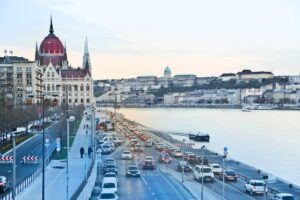Welcome to my Travel Blog: Understanding Over-Tourism
Hello fellow travelers! It’s time for another blog post, and today I want to address a topic that has been gaining attention in the travel industry: over-tourism. As someone who loves to explore new places and cultures, I have witnessed firsthand the impact of over-tourism on popular destinations. But what exactly is over-tourism and what can we do to combat it? Let’s dive in and find out.
What is Over-Tourism?
Over-tourism is a term used to describe the negative effects of excessive tourism on a particular destination. This can include overcrowding, environmental damage, cultural disruption, and strain on resources. It occurs when the number of tourists visiting a place exceeds the carrying capacity of the destination. In simpler terms, when there are more tourists than the destination can handle.
The Impact of Over-Tourism
Over-tourism can have a detrimental impact on both the destination and the local community. The constant influx of tourists can lead to overcrowding, which in turn can damage the infrastructure and natural resources of the place. It can also result in increased pollution and waste, causing harm to the environment. Additionally, over-tourism can lead to cultural disruption and degradation as locals are forced to adapt to the demands and behaviors of tourists.
Popular Destinations Affected by Over-Tourism
Some of the most popular destinations in the world have been affected by over-tourism. One example is Venice, Italy, which has seen a massive increase in tourists over the years. The small city is struggling to cope with the influx of visitors, resulting in overcrowding, damage to historic buildings, and pollution of its famous canals. Other popular destinations such as Barcelona, Santorini, and Bali have also experienced the negative effects of over-tourism.
Solutions to Combat Over-Tourism
So, what can we do to combat over-tourism and ensure sustainable travel? Here are a few solutions that can make a big difference:
Travel Off-Season
One way to reduce the strain on popular destinations is to travel during the off-season. This not only helps to spread out the number of tourists throughout the year but also allows for a more authentic and less crowded experience. Plus, you may even save some money on flights and accommodations!
Stay in Alternative Accommodations
Instead of staying in large, all-inclusive resorts or hotels, opt for smaller, locally-owned accommodations such as homestays, guesthouses, or eco-lodges. This not only supports the local economy but also helps to distribute the economic benefits of tourism to smaller businesses.
Explore Lesser-Known Destinations
While it’s tempting to visit the most popular and Instagram-worthy destinations, consider exploring lesser-known places. This not only helps to reduce the strain on over-touristed destinations but also allows you to discover hidden gems and support local communities.
Be Respectful and Mindful
One of the most important things we can do as travelers is to be respectful and mindful of the places we visit. This includes following local customs, being mindful of our impact on the environment, and supporting local businesses. Remember, we are guests in someone else’s home, and it’s important to act accordingly.
Support Sustainable Tourism
It’s essential to support sustainable tourism initiatives that aim to protect the environment and benefit local communities. Look for tour companies and accommodations that have eco-friendly practices and give back to the community. You can also consider volunteering or participating in community-based projects during your travels.
Final Thoughts
As travelers, it’s our responsibility to be mindful of the impact we have on the places we visit. Over-tourism is a complex issue, and it will take efforts from both tourists and the tourism industry to combat it. By implementing these solutions and being responsible travelers, we can ensure that the places we love to visit remain sustainable and enjoyable for generations to come. Let’s travel with a purpose and make a positive impact on the world. Happy travels!




